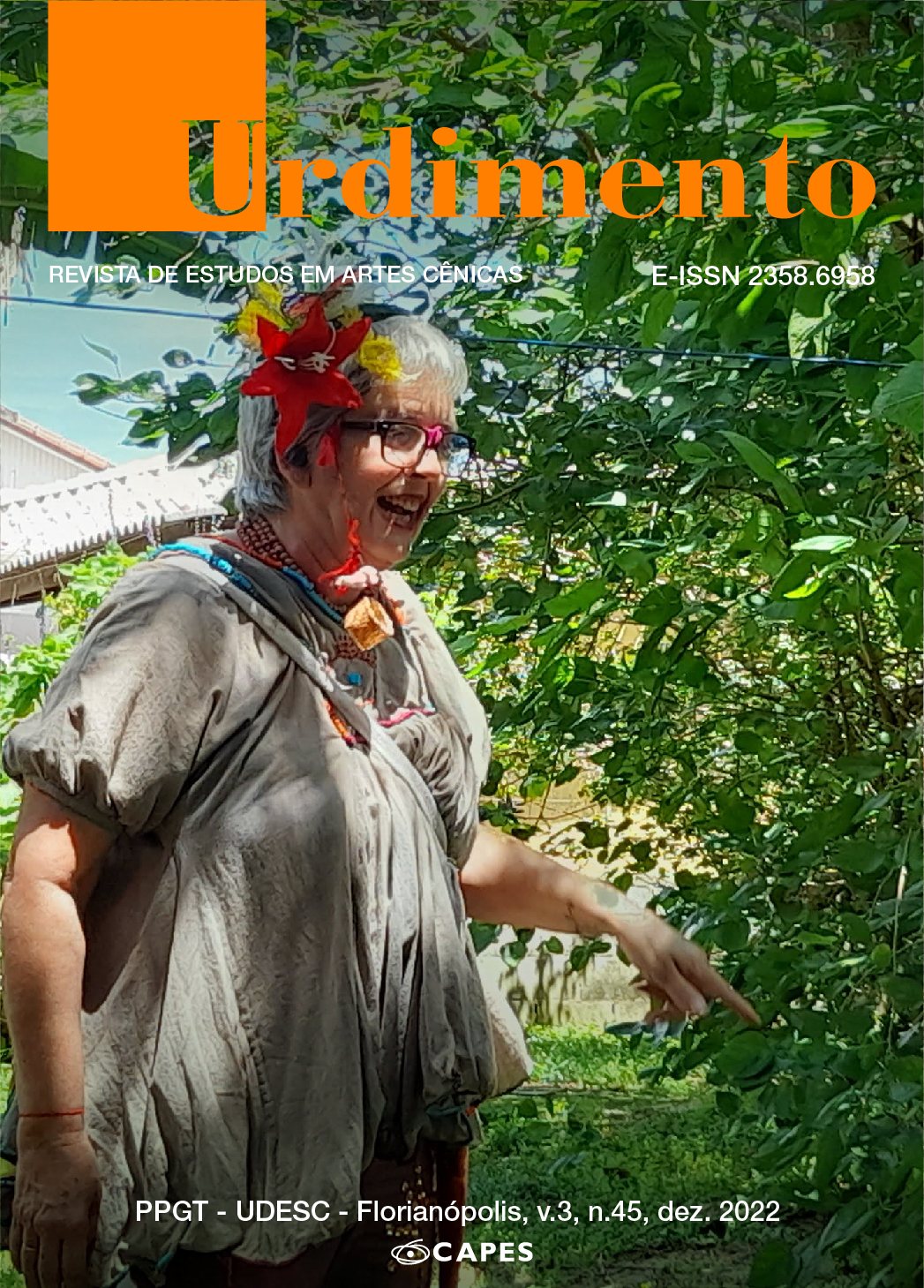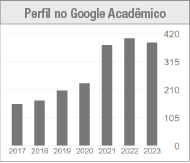Theaters in 19th Century cities and path dependence on contemporary cultural policies
DOI:
https://doi.org/10.5965/1414573103452022e0102Keywords:
Theater building, Cultural policy, th dependence, Civic communityAbstract
This article presents a reflection on the reasons why cities that had theater in the past show a greater degree of institutionality of their cultural policies in relation to other cities. Therefore, through a case study of the state of Rio Grande do Sul, a survey of historical data was carried out on the presence of theater in cities and on the institutionality of cultural policies. The analysis of the results was based on two theoretical-methodological approaches: the concept of path dependence and the concept of civic community. Thus, the existence of certain central institutions for current cultural policies was confronted with the existence of theatrical buildings in the 19th century. It was found that the cities that in the 19th century had theatrical movements to the point of enabling the construction of these buildings, left a political and social legacy. On average, these cities have cultural policies with a higher degree of institutionality than the others.
Downloads
References
BALÁZ, Vladimir; WILLIAMS, Allan M. Path-dependency and Path-creation Perspectives on Migration Trajectories: The Economic Experiences of Vietnamese Migrants in Slovakia1, International Migration, v. 45, n. 2, p. 37-67, 2007.
BITTENCOURT, Ezio. Da rua ao teatro, os prazeres de uma cidade: sociabilidades & cultura no Brasil Meridional - Panorama da história de Rio Grande. Rio Grande: Ed. Furg, 1999.
BRASIL, Instituto Brasileiro de Geografia e Estatística - IBGE. Pesquisa de Informações Básicas Municipais. Rio de Janeiro: IBGE, 2014.
BRASIL. Lei nº 12.343, de 2 de dezembro de 2010. Institui o Plano Nacional de Cultura - PNC, cria o Sistema Nacional de Informações e Indicadores Culturais - SNIIC e dá outras providências, 2010. Brasília, DF. Recuperado de http://www.planalto.gov.br/ccivil_03/_ato2007-2010/2010/lei/l12343.htm
BRASIL, Ministério da Cultura. As metas do Plano Nacional de Cultura. Brasília: MinC, 2013.
BUENO, Eduardo. Brasil: uma história. São Paulo: Ática, 2003.
CARVALHO, Cristina Amélia, SILVA, Rosimeri C.; & GUIMARÃES, Rodrigo G. Sistema Nacional de Cultura: a tradução do dinâmico e do formal nos municípios da região Sul, Cadernos EBAPE.BR, v. 7, n. 4, p. 665-686, 2009.
CHEDID, Samira; CAPELLA, Ana Cláudia N. AGENDA GOVERNAMENTAL E POLÍTICAS CULTURAIS: ascensão e mudanças na policy image do Plano Nacional de Cultura. Revista de Políticas Públicas, [S. l.], v. 22, n. 1, p. 21–41, 2018.
DOI: 10.18764/2178-2865.v22n1p21-41. Disponível em:
http://periodicoseletronicos.ufma.br/index.php/rppublica/article/view/9220.
COSTA, Eduardo José Monteiro da. A cultura como chave para a dependência da trajetória na teoria institucionalista de Douglas North. Nova Economia [online]. 2019, v. 29, n. spe [Acesso em: 20 out. 2021] , p. 1359-1385.
Disponível em: <https://doi.org/10.1590/0103-6351/5813>.
FLORES, Moacyr. História do Rio Grande do Sul. Porto Alegre: Martins Livreiro-Editora, 2013.
GAINS, Francesca; JOHN, Peter C.; STOKER, Gerry. Path dependency and the reform of English local government, Public Administration , v.83, n.1, p.25-45, 2005.
HALL, Peter. A.; TAYLOR, Rosemary C. R. Political science and the three new institutionalisms, Political Studies, v.44, n.4, p.936-957, 1996.
HESSEL, Lothar. O teatro no Rio Grande do Sul. Porto Alegre: Ed. da Universidade/UFRGS, 1999.
KAY, Adrian. A critique of the use of path dependency in policy studies, Public Administration , v. 83, n.3, p.553-571, 2005.
LIMA, Evelyn Furquim Werneck. Dos galpões industriais aos espaços públicos da cidade: alguns processos de configuração espacial nas artes da cena brasileira. Urdimento - Revista de Estudos em Artes Cênicas, Florianópolis, v. 2, n. 38, p. 1-31, 2020. Disponível em:
https://www.revistas.udesc.br/index.php/urdimento/article/view/18005.
LOBATO, Lenaura de Vasconcelos Costa. Dilemas da institucionalização de políticas sociais em vinte anos da Constituição de 1988. Ciência & Saúde Coletiva [online]. 2009, v. 14, n. 3
MACHADO, Paulo Pinheiro. A política de colonização do Império. Porto Alegre: Editora UFRGS, 1999.
NORTH, Douglass C. Understanding the Process of Economic Change. Princeton/Oxford: Princeton University Press, 2005.
PÉREZ, Meléndez José Juan. Reconsiderando a política de colonização no Brasil Imperial: os anos da Regência e o mundo externo, Revista Brasileira de História, v. 34, n. 68, p. 35-60, 2014.
PIERSON, Paul. Increasing returns, path dependence, and the study of politics, American Political Science Review, v.94, n.2, p.251-267, 2000.
PIERSON, Paul. Politics in time: history, institutions, and social analysis. Princeton, NJ: Princeton University Press, 2004.
PUTNAM, Robert. D. Comunidade e democracia: a experiência da Itália moderna. Rio de Janeiro: Editora FGV, 2006.
SOUZA, Jonathan Henrique. Como institucionalizar políticas públicas? E qual o papel da liderança. CLP - Centro de Liderança Pública, 2020. Disponível em: https://www.clp.org.br/como-institucionalizar-politicas-publicas-e-qual-o-papel-da-lideranca-mlg2/. Acesso em: 26 ago. 2022.
Published
How to Cite
Issue
Section
License
Copyright (c) 2022 Urdimento - Revista de Estudos em Artes Cênicas

This work is licensed under a Creative Commons Attribution 4.0 International License.
Copyright Statement
The articles published by the magazine are free to use. The copyright is all assigned to the magazine. The articles whose authors are identified represent the expression from the point of view of their authors and not the official position of the journal Urdimento. The author (s) undertakes whenever publishing material relating to the article published in Revista Urdimento mention the said publication as follows: This article was originally published by Urdimento magazine in its volume (put the volume), number (put the number) in the year of (put the year) and can be accessed at:
http://www.revistas.udesc.br/index.php/urdimento
This work is licensed under a Creative Commons Attribution 4.0 International License.




